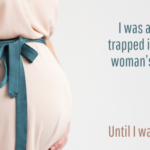Reaction to the announcement made by the Consumer Financial Protection Bureau yesterday regarding its proposed debt collection rule has been overwhelmingly positive, although there are some concerns that while this is a short-term gain for the ARM industry, there is a potential for problems in the long-term.
The CFPB announced yesterday that while it will continue forward with a proposed rule regarding disclosures to be made by third-party debt collectors, it will also remove the proposed verification and validation component of the proposal and move forward with a second rule to cover that section, but for both first-party creditors and third-party collectors. Previously, the CFPB had announced that first-party creditors would be dealt with in a separate rule.
By combining third-party and first-party with respect to the verification and validation component of its proposal, the CFPB took to heart what it had been hearing from the industry for nearly a year, said Joann Needleman, a partner at the law firm of Clark Hill and leader of the firm’s Consumer Financial Services Regulatory & Compliance Practice Group.
The CFPB heard feedback from its initial proposal last August when it convened a hearing of industry representatives from small businesses to discuss a number of proposals regarding how to further regulate the collections industry.
“It was unworkable,” Needleman said, referring to the original proposals that would have required collectors validate the contact information about the individual and the amount being collected prior to initiating any activity. “I think that the SERS did a great job at the proceeding explaining the process of how information comes in and that it’s not their information to verify. The CFPB made a huge mistake by not including first-party in the original outline or in the SBREFA process. They boxed themselves into a corner and this is the right way and the only way to get out if it.”
The industry will now await a proposed rule on disclosures that must be made to individuals by third-party debt collectors. The CFPB has not offered a timeline on that rule, but it was announced earlier this week that the agency is looking for approval to conduct a survey of 8,000 individuals about disclosures made during the debt collection process. The comment period is open until August 4 on the proposed survey, which means it could be some time before the survey is conducted and the results analyzed. The survey analysis process would likely have to be completed before the CFPR takes whatever other steps it needs to take care of to issue the proposed rule.
Most in the industry expect it will be well into 2018 before the CFPB is able to issue any proposed rule, be it on disclosures or on validation/verification.
Kelly Knepper-Stephens, the general counsel at Stoneleigh Recovery Associates, was a small business representative at the debt collection SBREFA hearing and was surprised at the CFPB’s change of direction.
“It’s awesome to have your concerns validated by the CFPB saying ‘We heard you and you’re right’ the first-party creditors need to be a part of this discussion,” she said. “It was definitely unexpected.”
There are other areas of the CFPB’s proposal, such as placing limits on how often a collection agency could contact an individual, that were not addressed in yesterday’s announcement. It is unclear whether those areas will be included in the disclosures rule, the combined first-party, third-party rule, a separate rule, or not dealt with on any level. It does appear, though, that the CFPB is interested in trying to modernize the regulation of communications. During his remarks yesterday when he made this announcement, CFPB Director Richard Cordray talked about the Fair Debt Collection Practices Act and how it references telegrams as a means of communication. That could indicate an interest in tackling the communication gap that exists between the FDCPA and current technology. The industry needs to continue pushing for clarification on using modern technology tools, like cell phones and emails, Knepper-Stephens said.
“It’s critical that collectors be able to use all the communication tools in the toolbox to reach out to consumers and come to amicable resolution on their debt,” she said.
While the industry appears to be happy with the decision announced by the CFPB, there are still concerns about what the proposed first-party, third-party rule will look like.
“The win is the wolf in sheep’s clothing until we know what these new rules will entail,” said Rozanne Andersen, the chief compliance officer at Ontario Systems. “My view from past experience and being a skeptic about rulemaking generally is that we are celebrating the fact that we have influenced more restrictions on the industry.“









